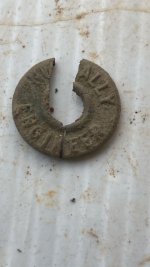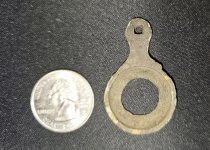Here we go again. The Kentucky bill has been resubmitted. It has the same sponsor (Meeks). The number this year is HB 295. I have only skimmed it quick as I just found it. Its late and I need to get to bed so will go thru it closer tomorrow and get back with the details. The end result appears to be much the same althought it seems to have been reworded.
I will post a link also. Just wanted to give everyone a heads up.
Mark S.
FMDAC Alliance Liaison
I will post a link also. Just wanted to give everyone a heads up.
Mark S.
FMDAC Alliance Liaison





